
views
1991 was a momentous year for South African cricket. It marked their re-admission into international cricket since their suspension from the sport by the ICC due to the South African government’s Apartheid policy. South Africa had been cricket’s outcasts for more than 20 years.
We examine the circumstances that led to their suspension, a bit about the period away, and their reinstatement.
It was in 1948 that the South African government officially adopted the segregation policy of Apartheid – a political doctrine that deprived Black Africans, Coloured and Asian Africans of certain socio-economic privileges.
On the cricketing front, it meant that South Africa, the 3rd nation to start playing Test cricket after England and Australia, allowed only white players in their national cricket team, and even when players of other races were good enough to be selected for the national team they were denied opportunities. Even prior to the official adoption of Apartheid, South African views regarding Apartheid were well known. Countries like West Indies and India, which had achieved Test status prior to 1948, had never toured the nation, nor had South Africa toured these parts.
So countries like England, Australia and New Zealand toured South Africa regularly, and vice versa.
England itself controlled many Asian and African countries, so its stand over such a policy adopted by South Africa was, for want of a better word, neutral in the initial stages of its adoption. Tours between South Africa and the above stated countries went on this way for nearly 20 years after the adoption of Apartheid.
Enter Basil D’Oliveira
We can never be sure how long things would have gone on like that in South Africa if matters hadn’t taken a different turn as the Basil D’Oliveira saga took centre stage.
Basil D’Oliveira was a South African of Indian-Portuguese descent. He was a very good cricketer, and was captain of the South African non-white team. Frustrated at the lack of opportunity to play at the highest level, he immigrated to England in 1960. He started playing first class cricket in the UK and, by 1964, became a citizen. D’Oliveira was a top class cricketer and just 2 years later, in 1966, he was drafted into the national side, playing regularly for England thereafter.
Things got troublesome when the time came for England to tour South Africa in 1968. From a few months prior to the series itself, people in both England and South Africa started to wonder if the prodigious Basil D’Oliveira would be picked for the tour. The problem was that, due to the Apartheid policy, South Africa did not permit whites and non-whites to play with or against each other. This policy drew sharp international criticism and resulted in South Africa being expelled from FIFA and the Olympics too. In fact, South Africa was not allowed to compete in the Olympics since 1964.
However, international cricket involving South Africa thrived, owing largely to the support of, or let’s say lack of condemnation of Apartheid from, the British. The MCC (which selected the England Team) always strove to maintain a good relationship with South Africa. But in the mid to late 60s, the situation became untenable even for England. The influx of immigrants from the West Indies and South Asia brought issues such as equal treatment of all races into political limelight.
Given such a political climate, Basil D’Oliveira’s selection in the team to South Africa became a powder keg of sorts. Controversy was sparked when the Interior minister of South Africa at the time, P.K. Le Roux, made a comment in a speech – “We will not allow mixed teams to play against our white teams here. That is our policy. It is well known here and overseas.” That brought matters to a head. It caused a furore in Britain and the British government became involved. The government made it very clear to the MCC that teams had to be picked purely on merit. D’Oliveira’s name did figure in a list of 30 players from which the final team was to be selected. He had been a bit inconsistent in his performances leading up to the tour, and had been dropped for a Test match in the series against Australia only to return for the final test of the series where he scored a century.
In an effort to mitigate the damage wrought by Le Roux’s controversial comments, the Prime Minister of South Africa, BJ Vorster, announced that ‘mixed teams’ from South Africa’s ‘traditional sporting rivals’ would be allowed to tour the country. However, the South African government kept a close watch on proceedings related to the selection of the England team. The MCC wanted to maintain good relations with South Africa and, at the same time, placate an irate public back home. Most importantly, the club wanted to ensure that the tour was not cancelled.
The Team selection and the aftermath
When the MCC announced their team for the South Africa tour, D’Oliveira’s name did not figure in it. The reason the selector’s gave was that he had been in patchy form and there were younger, more ‘in form’ players available. It was not lost on anyone that perhaps the selectors knew that D’Oliveira’s non selection would raise the chances of the game to improve. There was support for, and criticism of, the decision in equal measure in the English press. Former West Indies Test player Learie Constantine openly stated that D’Oliveira was omitted either because of his race or because the MCC supported apartheid. The general press took a wider view, with several newspaper columns reporting that the decision appeared to have been made to avoid offending the South African government.
Not all MCC members supported the selectors on this issue. Around 70 members, including former England captain David Sheppard, called for the tour to be abandoned. In South Africa, as per reports, whites received the news with much happiness while non-whites, understandably, had the opposite reaction. The reactions in England continued to escalate with some sections even writing to the then PM, asking him to intervene and have the tour cancelled. The MCC was stung by the strong reactions, and perhaps failed to fully comprehend the far reaching consequences of not selecting D’Oliveira.
As fate would have it, one of the original members of the selected team withdrew from the squad owing to an injury, and the selectors, perhaps eager to win back public support, quickly announced D’Oliveira as the replacement. No one truly knows if this decision was made by the selectors independently or under pressure from the British government.
The moment the South African PM heard of this, he announced that the MCC team was now no longer welcome to tour South Africa. He stated that a political statement was being made via the selection of this team, which he would not allow. The MCC stuck to their guns, refusing to change the squad that had Basil D’Oliveira still in it.
Matters reached a head and the tour was shelved. This incident caught the public’s attention and South African teams in other sports such as rugby also faced opposition when they toured – demonstrations and protests led countries to cancel tours by South Africa. Thus, the MCC’s falling out with the South African government proved to be a catalyst in that country’s isolation from world sport. In 1970, the ICC voted to suspend South Africa from international cricket.
Exclusion, and the ‘Rebel’ tours
The exclusion from international cricket forced a change in thinking in team selections in South Africa. There were attempts to base the game, and teams, on merit, and to include players from all races. But non-whites largely despised the game.
This period also saw an exodus of players as many cricketers left the country to play in the English county set up. Some players of South African decent would go on to play for England, such as Tony Greig, Allan Lamb just to name two. (That trend, of course, continues to this day for other reasons.)
A decade of Isolation from cricket drastically impacted the standard of cricket being played in South Africa. The world game was taking off to another level with the advent of the ODI World Cup in 1975 and World Series Cricket. The South African Cricket Union( SACU), led by former South Africa captain Ali Bacher, knew something had to be done, so they tried to tempt current and former international players to tour South Africa for ‘Tests’ and ODI matches. Such ‘Rebel’ players touring South Africa were likely to face censure and bans from their home boards. In lieu of that risk, the SACU offered them a handsome compensation.
Through the 1980s, seven such rebel tours took place. The rebel teams comprised mostly ex-international players or players who were not selected for their national teams regularly. The first team to ‘tour’ was the English IX of 1981-82. That side contained prominent names like Graham Gooch, Jeffrey Boycott and Alan Knott – all of whom received 3-year bans from international cricket.
In 1982-83, a Sri Lankan team went to South Africa. They were banned for life and faced heavy criticism. The real coup was when a West Indian side toured in 1982-83, and again in 1983-84. This was a team full of players deemed surplus by the all conquering West Indies side of the ‘80s. That said, the team still contained players like Sylvester Clarke, Collis King, Alwin Kallicharan and Colin Croft. The ‘rebel’ players were handed lifetime bans by their home board.
The Australian rebels toured twice as well – in 1985-86, and ‘86-87. This was followed by the English in 1989-90.
The period away from international cricket deprived the world stage of many South Africans in their full glory. Supremely talented cricketers like Graham Pollock, Barry Richards and Mike Proctor could never become the international stars players of their caliber ought to have. Many others like Clive Rice, Jimmy Cook and Peter Kirsten were in the twilight of their careers by the time South Africa was back on the international stage.
In mid-1991, the Apartheid legislation was repealed in South Africa, which paved the way for their readmission into the international game. India, along with Pakistan, Sri Lanka and West Indies, had been at the forefront of the block opposed to cricketing ties with South Africa once their suspension was in place. Thus, as a sign of things returning to normalcy, South Africa made a quick tour to India in late 1991 to play 3 ODIs, their first ever official ODI series.
Apart from aging players like Rice, Cook and Peter Kirsten, the visiting team had players like Allan Donald, Brian Mcmillan and Dave Richardson who would go on to have successful international careers for many years.
With the disbanding of Apartheid, South Africa was back as a force to reckon with in world cricket. Omar Henry became the first non-white Test player for South Africa after the Apartheid era. Non-white players like Herschelle Gibbs, Paul Adams, Makhaya Ntini were an integral part of South African teams that followed, and players like Kagiso Rabada, Vernon Philander and Lungi Ngidi are much the same for the contemporary South African cricket team.
Read all the Latest News, Breaking News and Coronavirus News here.












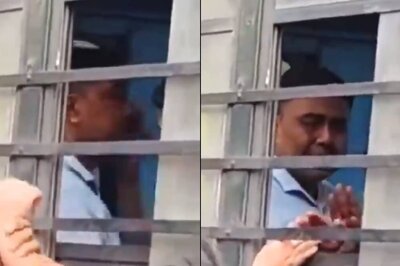
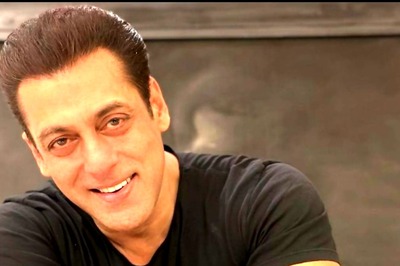
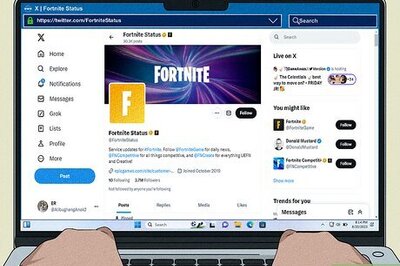
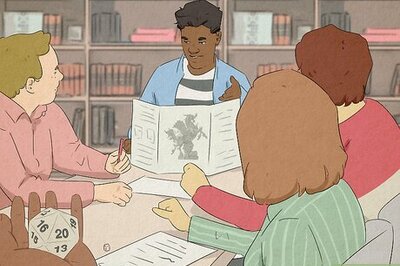

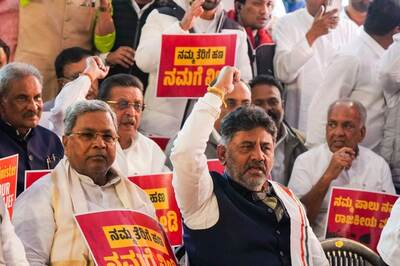

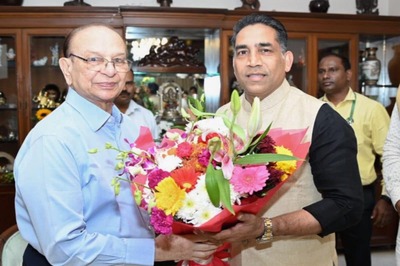
Comments
0 comment